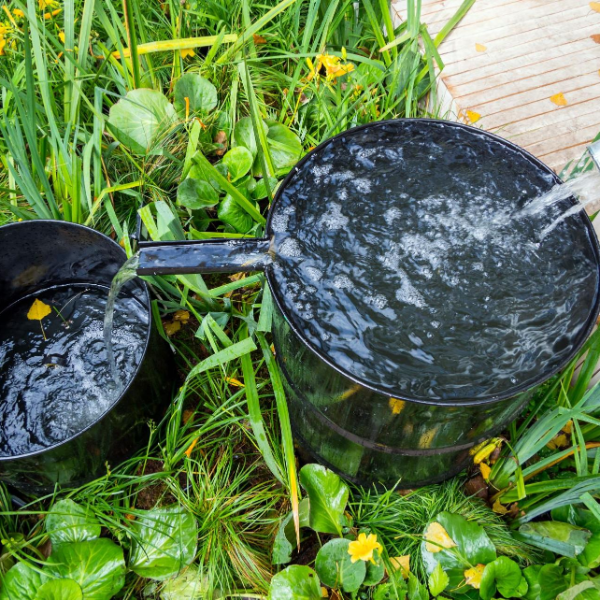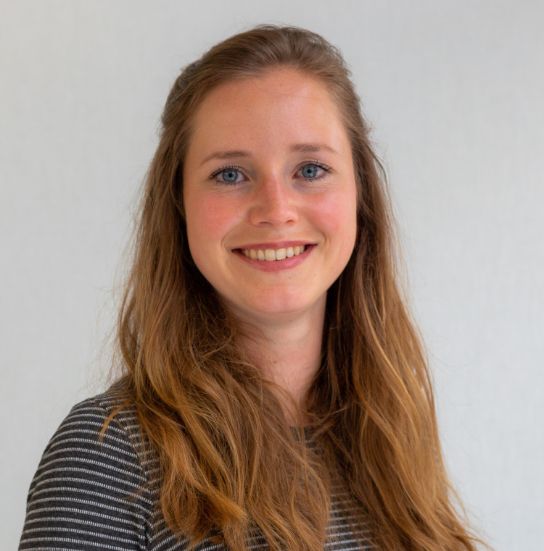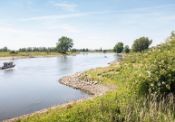Karin Snel’s moonshot idea: Citizens take action to limit flood damage themselves

Karin Snel’s moonshot idea: Citizens take action to limit flood damage themselves
In 1962, President John F. Kennedy made an inspiring, bold speech – also known as the Moonshot Speech – that rallied the United States behind a costly but highly successful space programme in which thousands of Americans pooled their knowledge, insights and energy to put the first man on the moon. We could use some of that ‘moonshot thinking’ in water management today. To wrap up and build on the Climate-Robust Water Systems webinar series, we are asking a variety of people from the world of science and water management to share their own moonshot ideas as well as what they are doing to achieve them. This time, we spoke to Karin Snel.
Karin is a researcher at Utrecht University in the field of water governance and flood risk communication. She used the results of her research to develop the IkBenWaterproof (‘I am waterproof’) tool in collaboration with Witteveen+Bos.
On 19 November, Karin will defend her PhD thesis on the contribution residents can make to limiting the damage caused by waterlogging and flooding. By taking action themselves, she says, residents can reduce damage by more than 50%. So, why aren’t the Dutch doing more? Part of it, says Karin, is a lack of effective ‘risk communication’.

Tells us a bit about yourself and what drives you as a researcher
I did my Bachelor degree in anthropology in Leiden and then I did a Master degree in planning. These two interests come together in my research. I’m fascinated by the role that residents can play in solving spatial issues, such as climate change adaptation. The next challenge, of course, is how to mobilise them to take action.
What is your moonshot idea?
My moonshot idea is that every single citizen in the Netherlands is aware of the water risks they are vulnerable to, as well as the responsibility they have in limiting problems caused by water and the specific things they can do to achieve this.
What can be accomplished in ten years, and what will we need to do to get there?
When I walk through a residential area in ten years’ time, I hope to see today’s visions for a climate-resilient city everywhere I look: green roofs, green gardens, rain barrels, elevated front doors, wadis, water squares, and houses with water barriers in front of their doors. To make this dream a reality, we need to make a real commitment to effective risk communication in the coming years – at national, regional and local levels.
At present, governments tend to communicate about risks in a very abstract way. They talk about the chances of failure and about maximum water depths. It’s also not always clear who is responsible for what: the water authority, the municipality, or you as an individual homeowner? For my PhD research, I spent a lot of time talking to individuals. A common perception I discovered was that water authorities are responsible for preventing flooding, partly because people pay water authority taxes. There is no magic way to motivate residents to get involved, but you have to at least give them all the information they need to make an informed decision about whether or not to take action. That’s not the case at the moment.
How can you as a researcher contribute to this?
My PhD research examines which elements are needed for effective risk communication – for example, an understanding of the division of responsibilities. A follow-up question here is, of course, whether the current division is still suitable in the face of climate change? More broadly, I would like to think about a fair and social distribution of the costs that we will have to bear together in order to mitigate water issues.
And as an individual?
Friends and acquaintances sometimes talk to me about the recent floods in the south of Limburg and in Drenthe, and they think that something like that could never happen where they live. Everyone tends to dismiss the risk. Since doing my PhD, I always try to discuss it with them: Why do you think that? And I explain to them that heavy rain can cause major problems where they live too.
What would you like to ask our next guest in the Moonshot series, water authority chair Luc Kohsiek?
Water authorities still tend to provide reassurance whenever there’s a flood. They say things like ‘You’re well protected’. But this doesn’t instil a sense of urgency – the idea that people can and should be taking action themselves to limit the damage caused by water. I’d be interested to hear his take on that.


